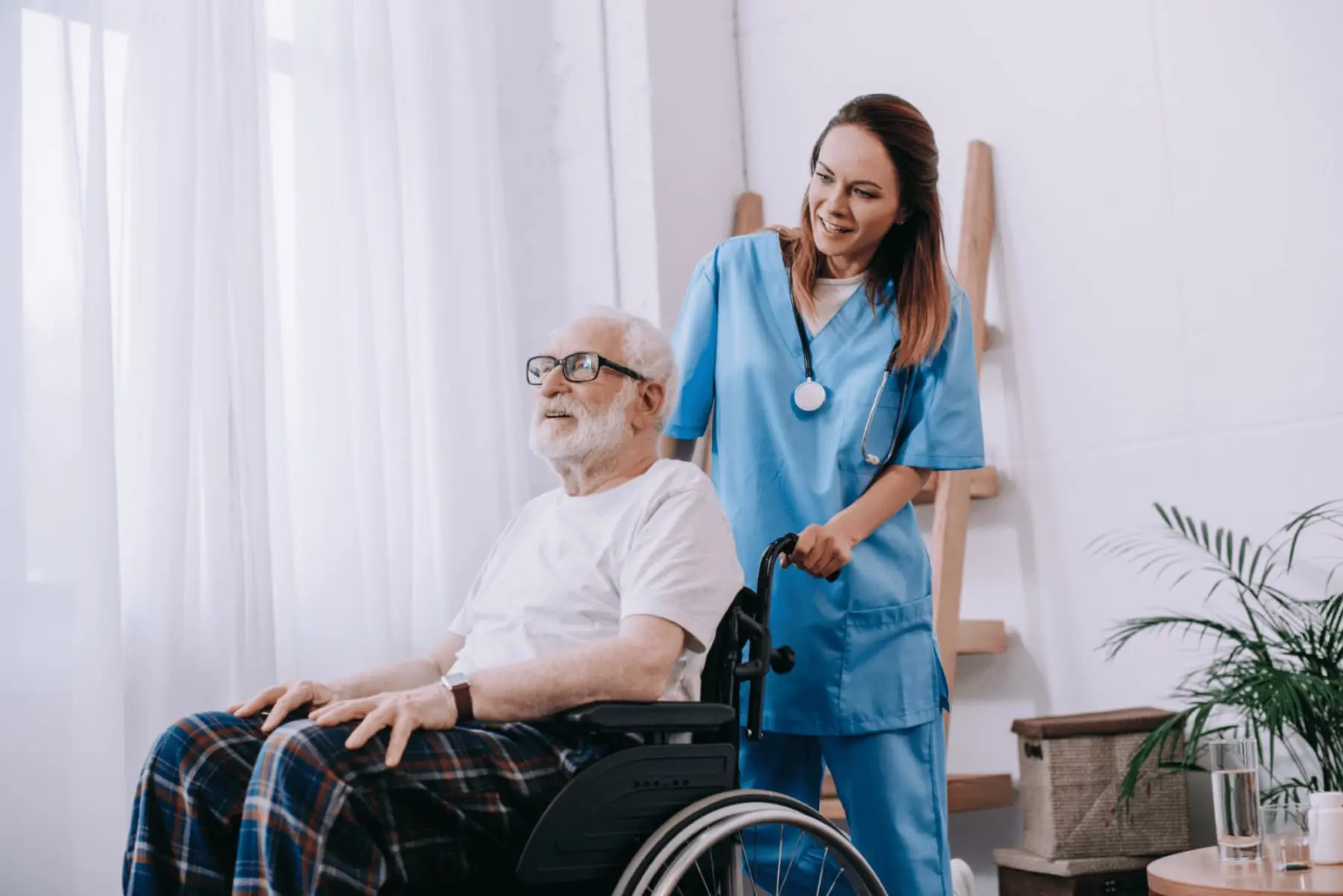Home health aides play a crucial role in supporting patients’ everyday lives. They provide essential care at home, allowing individuals to stay in a familiar environment while receiving the help they need.
These professionals assist with daily activities, and medical needs, and offer emotional support, making home care a comfortable and viable option for many.
What is a Home Health Aide?
Definition of Home Health Aides
Home health aides are trained caregivers who provide personal and medical assistance to patients in their homes. Unlike nurses or personal care assistants, home health aides focus on helping with day-to-day tasks and basic medical support. They are often the bridge between patients and medical professionals, ensuring that the patient’s care plan is followed closely.
Why Home Health Aides Are Essential
Home health aides are essential in healthcare because they help patients maintain their independence. They offer personalized care tailored to individual needs, which helps patients feel comfortable and safe in their homes. Aides also reduce the need for frequent hospital visits, allowing patients to recover or live with chronic conditions in a supportive and familiar setting.
Core Responsibilities of Home Health Aides
Personal Care Assistance
Home health aides assist with personal care tasks like bathing, dressing, grooming, and toileting. These services help patients maintain their hygiene and dignity, which is vital for their physical and emotional well-being. Aides are trained to handle these tasks respectfully and safely, ensuring the patient feels comfortable and supported.
Medication Management
Aides play an important role in helping patients manage their medications. They remind patients when to take their pills and assist in organizing medication schedules. Although aides do not administer medications like nurses, their support is critical in ensuring that patients follow their prescribed treatment plans.
Support with Mobility and Transfers
Home health aides assist patients with mobility, helping them move safely around their homes. They support with transfers from bed to a wheelchair, walking with mobility aids, and preventing falls. This assistance is crucial for patients with limited mobility or those recovering from surgery, as it helps them stay active and reduces the risk of injuries.
Meal Preparation and Nutrition
Aides help with meal preparation and nutrition, ensuring patients receive balanced, healthy
meals that meet their dietary needs. They plan, prepare, and sometimes assist with feeding, making sure meals are safe and nutritious. This service is especially important for patients with specific dietary restrictions or those who struggle to cook for themselves.
Light Housekeeping and Errands
Home health aides also perform light housekeeping tasks to keep the patient’s home clean and organized. They may handle laundry, dusting, vacuuming, and other basic chores. Additionally, aides run errands like grocery shopping or picking up prescriptions, ensuring that the patient’s home environment remains safe and comfortable.
Skills and Qualities of an Effective Home Health Aide
Essential Skills and Training Requirements
Home health aides need specific skills and training to provide quality care. They often complete certifications in CPR, first aid, and elder care. Specialized training in handling chronic conditions, like dementia or diabetes, is also common. This training helps aides understand patient needs and respond effectively in emergencies.
Compassion, Patience, and Communication Skills
Compassion and patience are key qualities of a good home health aide. These aides work closely with patients who may be elderly, sick, or recovering. They must be empathetic, and understanding of the emotional and physical struggles of their patients. Good communication skills are also important, as aides need to talk clearly with patients and their families to explain care routines and address concerns.
Challenges Faced by Home Health Aides
Emotional and Physical Demands
Being a home health aide can be emotionally and physically demanding. Aides often deal with patients in pain, distress, or with complex medical needs. This can be emotionally exhausting, as they provide not only physical support but also emotional comfort. The physical aspect involves lifting, helping patients move, and performing tasks that can be tiring. Aides must manage their own health to maintain the stamina required for this role.
Managing Diverse Patient Needs
Aides work with patients who have a variety of medical and personal care needs. This requires them to be adaptable and attentive. Each patient may have a unique set of challenges, such as mobility issues, dietary restrictions, or cognitive impairments. Aides must quickly learn and adjust their approach to meet each patient’s specific needs, often balancing multiple tasks at once.
Opportunities for Growth and Career Advancement
Career Pathways
Home health aides have several pathways for career advancement. With additional training and certification, aides can become certified nursing assistants (CNAs) or move further into roles like licensed practical nurses (LPNs) or registered nurses (RNs). These steps require more education but open doors to higher responsibilities and better pay.
Embracing Technology in Home Care
Technology is becoming a key part of home health care. Aides now use tools like health monitoring devices and telehealth platforms to improve patient care. Learning to use these technologies can enhance an aide’s skills and efficiency. It also creates new opportunities to provide better care and stay updated with healthcare innovations.
Impact on Patients and Families
Enhancing Quality of Life
Home health aides play a crucial role in enhancing the quality of life for patients. By providing care at home, they allow patients to remain in a familiar environment, which can improve their overall well-being. Aides help reduce the need for frequent hospital visits by managing daily care needs and monitoring health conditions. This consistent support helps patients stay healthier and more comfortable, contributing to better outcomes.
Providing Peace of Mind to Families
Home health aides also offer valuable emotional support to families. Knowing that a skilled professional is taking care of their loved one can greatly reduce stress and anxiety for family members. Aides help ease the burden of caregiving, allowing family members to focus on their relationships rather than the day-to-day care tasks. This peace of mind is invaluable, especially for those who cannot be present all the time.
The Future of Home Health Aides
Growing Demand for Home-Based Care
The demand for home health aides is rapidly increasing, driven by an aging population and a strong preference for aging in place. More people want to stay in their own homes as they age or recover from illness. This trend, along with a shortage of long-term care facilities, is making home health care a preferred option. As a result, the need for skilled aides will continue to grow, creating more opportunities in this field.
Innovations and Evolving Roles
The role of home health aides is evolving with advancements in healthcare technology. Aides now use digital tools like remote health monitoring devices and telehealth services to provide more effective care. These innovations are expanding their capabilities, allowing aides to better manage patient health and communicate with medical professionals. As technology continues to advance, the role of aides will adapt, offering even more ways to support patients at home.
Conclusion
Home health aides are essential to providing personalized, compassionate care that enhances the lives of patients and their families. Their skills, dedication, and adaptability make them invaluable in today’s healthcare landscape.
If you’re considering home care for yourself or a loved one, hiring a skilled aide can offer significant benefits—improving patient outcomes, easing family stress, and supporting a higher quality of life at home.












